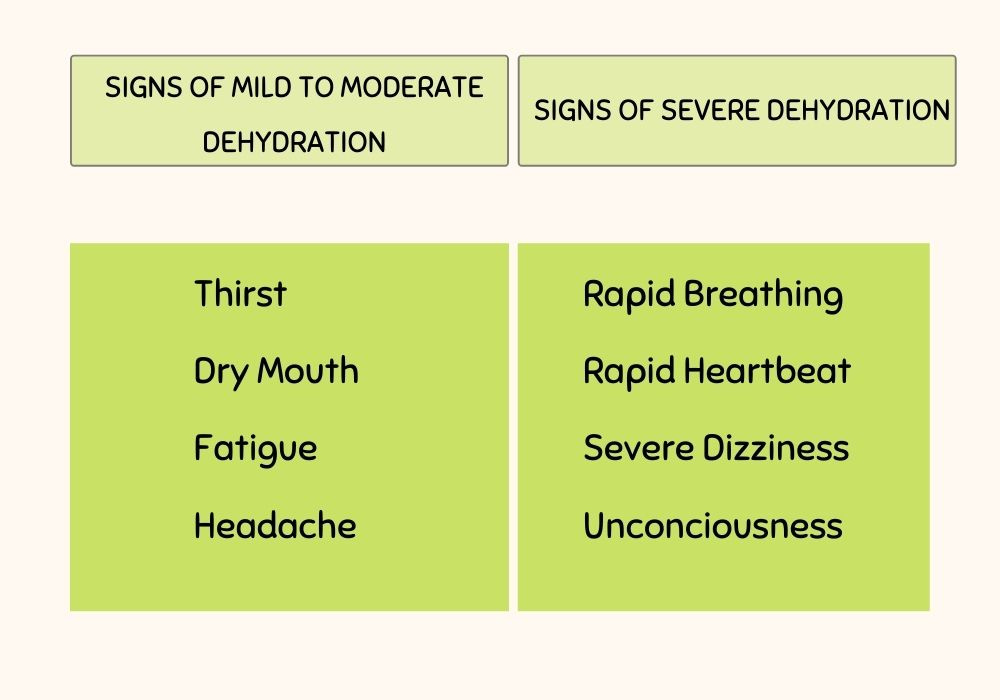Have you have thought whether you are drinking water in the ideal way or not? We don’t often think that there is a right way to drink water. If we are able to satisfy our substantial need of water and if we are hydrated. We stop stressing about water. But there are a lot more nuances to it. The correct consumption of water holds a major role in our digestion process. Hence, we must pay heed to the right correct way of drinking water.

Why Do We Need To Keep Ourselves Hydrated?
This question has a very simple answer- for better digestion.
We have a sufficient quantity of energy reserves left over. We don’t use our maximum capacity for digestion.
The process of digestion begins just by thinking about food. When you begin to think about food, smell food, or sit down to eat, your mouth immediately begins to water. No food has actually entered your body. This is why our human body is considered a master piece.
Approximately, 20 minutes prior to eating, we must hydrate ourselves. The reason is that the stomach lining is a very hostile environment, being extremely acidic. We should protect that stomach lining, which is a protein based muscle, from this hydrochloric acid and acidic digestive enzymes, in order to digest our food but not digest our stomach.
Ayurveda & Digestion
If we think about this whole digestion process from a doshic standpoint. If you have a lot of vata dosha, you will tend to be more dry. In case you have excess kapha Dosha, you will naturally be moist and form more mucus. If there isn’t enough moisture in there, we will not be able to protect and create a good, moisturizing safe barrier for stomach.
What Happens When We Are Dehydrated?
Your body does not feel safe, if it does not have the right conditions. It can not release all of the right enzymes in order to digest. The intelligent body knows that if it releases all this hydrochloric acid, it’s actually going to cause damage to it. And so it is not going to release all the proper enzymes to digest your food. So you are going to eat your food.
If you are dehydrated, the food will come down into the stomach. The body will lack hydro chloric acid, pepsinogen and the different enzymes, secreted into the stomach. The body won’t be able to break down the food with the food stagnant, you will experience heaviness in the bowels. You can end up with constipation. So we can prevent a lot of this, just through simple hydration.
Hydrate yourself about 20 minutes before you eat. This is done, based on thirst. The volume that you drink will be based on your thirst level. Hence, drink at least two to three ounces of water. Preferably, warm water with electrolytes. Not a juice or energy drink or a fancy Gatorade. Addition of some pink salt or Celtic salt will help. You can add a little lemon, lime, maple water or some honey.

How much water should you really drink?
It takes about 2 liters of water to digest one meal. It does not imply that you drink two liters of water, while you are eating your meal. It is the amount of fluid that your body is using to digest, just that one meal. If you are having gulps of water during a meal, you will dilute those digestive enzymes. Thereby, we should not drink water during meals. Avoid drinking more than 20 minutes closer to the meals. So if it’s less than 20 minutes to the meal, don’t drink.
What type of Water should you drink?
Water is of different types. Every place also has different water. Coincidentally, the taste of water changes with varying location. The following are the major types of water. The most commonly consumed water is mineral water.
- Mineral water –
We can drink that kind of water all day long, especially if you have a doshic imbalance and during constipation. Most commonly consumed type of water.
- Lemon water –
It should be consumed early in the morning. It helps to flush the kidneys.
- Tap water –
It contains toxins and impurities. It is composed of hormones, Fluoride, chlorine, etc. This can be consumed, only after filtering thoroughly.
- Distilled water-
It is very pure, but too acidic. Hence, cannot be consumed on a daily basis.
- Maple Water-
It is the water that is taken as the fluid from a maple tree and directly made into syrup through distillation process. Finally, it becomes a syrup. So it does have a sweetness to it and it has a lot of manganese which helps in balancing all of the electrolytes and minerals in the body.
- Coconut water-
It is a great electrolyte replacement, which is also very tasty. Probably best to use in summer. It is a little heavy and can be a bit harder to absorb. So if you are facing dehydration, don’t jump straight to coconut water, because it might be a little difficult for your body
Water today is not the same as water historically. If you think about where our ancestors, got their water. It was being rained down from the sky. It was running over the mountains. It was being distilled over these rocks, pulling the minerals from the stones. It would sit in these pools and get Prana, that would change it’s ability. They used to drink straight from the stream.
That is really different than the water that we are drinking nowadays. There are a lot of impurities and toxins in there, that we didn’t have before. So it is something to consider when you are drinking tap water. Just looking at the source, making sure that you are being informed about the kind of water that you are drinking.
Drinking Water The Ayurvedic Way
How to drink water and what type of water to drink in accordance with ayurveda
1) Ayurveda says we should drink boiled water compared to cold
2) According to Ayurveda we should drink boiled warm water compared to cold water
This is because cold water diminishes our inner digestive fire.
Boiled water lightens the quality of water hence making it very easier to digest ,It is advised to boil the water for your entire day and even if it comes down to room temperature you can still drink it as it is boiled hence making it easier to digest
3) One should not force feed drink water to avoid feeling thirsty
Ayurveda says that thirst is a body urge just like sneezing, hungry , sleeping etc. just as we can’t force ourselves to sleep, drinking too much water can lead to hyponatremia, hence it is advisable to drink boiled water (preferable)until you feel satisfied when you feel thirsty.
4) In accordance with Ayurveda one should sip water and not gulped down water in one go as it can lead to mixture of gastric juices and blood
5) Ayurveda teaches us that we should drink water while sitting and not standing, as drinking water while sitting can help proper distribution of water all around the body
Ayurvedic Rules of drinking water when consuming meals
1) Do not drink water before and after eating food, and should be drink in between the meals
According to Ayurveda drinking water before food leads to decrease in digestion and after food can make a person obese and lead to assimilation
2) Ayurveda states that there be a gap 45 minutes before food and water intake, if one feels thirsty they can have juice or buttermilk
To summarize it before meal is considered to cause weakness, during meal will create balance and after meal will lead to obesity.
If a person drinks water before having meal the person will lose weight as the person will not be able to able to eat the right amount of food
According to Ayurveda if a person wants to gain weight, the person should drink after having a meal, when we drink water after having a meal, we tamper with the natural time required to digest our food and hence it makes ur hungrier faster and leads to gaining weight.
According to Ayurveda if a person wants to maintain weight they should drink water in between the meals, this will result in person not become obese or thin.
Ayurvedic Rules of drinking water after waking up
1) Ayurveda teaches us that we should drink water empty stomach when it is dawn.
The reason behind this is that drinking water before sunrise can help us in rejuvenation, and further can help in getting rid of constipation, hair, and skin and heart problem.
This is known an ushpasan. Ayurveda also teaches us that we should drink water which is kept in copper and steel vessels. This is because it can help in balancing the doshas as copper and steel positively charges the water.
Did you find this post useful? Would you like to get back to it later? Save THIS PIN below to your Pinterest Natural Living or Health or Herbs board!

